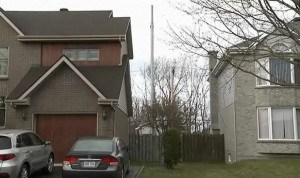
Shaw is ripping the wires out of its analog FM cable radio service, formerly delivered free of charge to all Shaw subscribers.
Shaw Communications’ plans to abandon its analog cable FM radio service, delivered free of charge to basic Shaw subscribers, has been met with resistance by customers who appreciated the improved reception the service delivered.
Some noted Shaw is eliminating the free service and replacing it with one that requires a digital cable subscription to receive. Shaw:
Shaw previously offered customers access to FM radio stations free of charge with their coax cable connection, as part of their Shaw service. Given that many of our customers no longer use these stations, we are in the process of removing this service across our systems.
Removing FM radio stations allows us to free up additional bandwidth, which means Shaw can deliver faster Internet speeds, increased High-Definition content and more Shaw Exo On Demand programming. This change is part of Shaw’s dedication to providing our customers with leading edge technology through our superior Shaw Exo network.
How can I access my radio stations?
There are a number of options for customers to continue listening to radio stations:
- Most radio stations offer their services via online streaming. We have provided links to local radio stations’ websites to allow you to stream their programming online. You can access these lists below.
- You can also purchase a radio transmitter at stores like Best Buy or Future Shop, which will allow you to tune into your favourite radio stations. These devices cost as little as $30 and require an Internet connection to receive any “out-of-market” services. Installation can be as easy as plugging in the transmitter into the “Audio Out” feed of your computer, and gives you access to thousands of stations around the world.
We also offer a number of commercial free radio stations through our Galaxie service – customers with a digital box have access to up to 55 channels to enjoy a variety of music styles and offerings. To learn more about Galaxie, visit: http://vod.shaw.ca/music/galaxie_player/
 The problem with both of Shaw’s options, according to readers who have contacted Stop the Cap!, is that they come at an added cost.
The problem with both of Shaw’s options, according to readers who have contacted Stop the Cap!, is that they come at an added cost.
“Shaw would love it if we streamed those radio stations, which all count against our bandwidth cap, instead of listening to them for free on the cable radio,” says Irene Delasquay from Prince George, B.C. “Galaxie is just a music jukebox service that requires you to buy a digital cable subscription and rent a box to listen, and I don’t want all that extra equipment and expense.”
Some wonder why Shaw is discontinuing the service in the first place. Shirley and Meg Bonney told the Comox Valley Echo:
When we finally we able to speak to a person at Shaw we were told that they “didn’t think that many people were using the FM frequencies”. Had they ever inquired? Had they even tried to find out? Or had they just made a biased assumption – perhaps to try to force people to buy their digital black box in order to access even more of their own, commercial music channels?
We were also told that the CBC frequencies were a “gift” from Shaw.
![]() Many readers who have been in touch with Shaw are being told their best alternative is streaming radio signals over a personal computer, but that presents a problem for some who don’t have a personal computer, have located it in an inconvenient room to listen, or who do not want to waste electricity running a computer just to listen to the radio.
Many readers who have been in touch with Shaw are being told their best alternative is streaming radio signals over a personal computer, but that presents a problem for some who don’t have a personal computer, have located it in an inconvenient room to listen, or who do not want to waste electricity running a computer just to listen to the radio.
While cable radio is no longer common in many parts of the United States, the vast expanse of Canada combined with an often-insufficient network of low-powered FM repeater transmitters, has made reception of commercial and certain public radio signals difficult, especially inside homes.
Roger and Isabel Thomas feel the loss hurts their ability to stay in touch with informative programming long-abandoned by commercial stations and cable networks:
The FM service provided us with daylong (and night-time) enjoyable, culturally stimulating, commercial free listening. It kept us abreast of national and world-wide events and allowed us to enjoy our selection of favourite music, eclectic though it may have been.


 Subscribe
Subscribe





